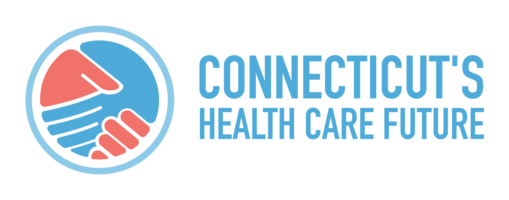ICYMI: ‘Coverage Through CT’s Health Exchange Will Soon Be More Affordable For Many’
HARTFORD, Conn. – As Connecticut lawmakers consider legislation to create an unaffordable new state government-controlled health insurance system known as the state government option, the CT Mirror reports that “[s]tarting May 1, the state’s health insurance exchange, Access Health CT, will open a special enrollment period for residents who want to take advantage of additional subsidies that will help make coverage more affordable for many.”
The report continues: “The subsidies are backed by funding included in President Joe Biden’s American Rescue Plan, authorized in March. The aid runs through the end of 2022, and state officials are hoping it will be extended. Many residents who didn’t previously qualify for premium tax credits will be eligible starting in May, while those who did qualify may see increased benefits. Premium tax credits lower the monthly payment a consumer must make to an insurance company for coverage … The average savings per household will be $116.05 per month, or $1,392.57 per year, Access Health said. More than half of households currently in a qualified health plan will pay under $16 per month for their health insurance.”
As the Hartford Courant reports, the push to create a new state government option “comes as the federal government, through the newly enacted American Rescue Plan, is funding a massive expansion of Obamacare and the state insurance exchanges, including Access Health Connecticut. Gov. Lamont, who opposes the Lembo-endorsed plan, says he favors expanding coverage through Access Health Connecticut, which offers federally-subsidized health coverage to more than 100,000 state residents through private insurance companies.” Axios reports that “[m]ost uninsured Americans are already eligible for Medicaid or subsidized Affordable Care Act coverage,” according to an analysis by the Kaiser Family Foundation.
A new analysis by the Brookings Institution also highlights the significant new resources now available for Americans to obtain affordable health coverage under the federal government’s recently-enacted American Rescue Plan Act (ARPA). As Connecticut lawmakers consider creating an unaffordable, new state government-controlled health insurance system known as the state government option, the Brookings analysis concludes that elected leaders in Hartford and other state capitals should take “caution against making lasting changes” to their states’ health care policies “until matters are clearer.”
As the largest expansion of affordable coverage since the Affordable Care Act more than a decade ago, ARPA has “profound implications for state health policy, aiding state efforts to make coverage more affordable and accessible,” the Brookings analysis finds, adding that “the potential for future action [at the federal level] requires states to remain nimble in their decision-making.” President Joe Biden’s proposed next steps on health care would “make recent boosts to Obamacare subsidies permanent, an idea that enjoys broad support,”POLITICO Pulse reports.
Meanwhile, a recent poll conducted by Locust Street Group on behalf of Connecticut’s Health Care Future finds that a majority of Connecticut voters do not support the proposed state government option and are satisfied with their current health coverage and care. The poll of 800 likely voters in Connecticut reveals that a majority want lawmakers to build on and improve what’s working in health care rather than start over with a new state government-controlled health insurance system such as the state government option.
The poll’s key findings include:
- A majority of Connecticut voters do NOT support the state government option (only 36 percent support).
- 80 percent of voters prefer for lawmakers to BUILD ON Connecticut’s health care system rather than create a new state government option.
- Voters are especially CONCERNED about the impacts of the state government option on access to quality care (77 percent), jobs/economic growth (74 percent), and costs (72 percent).
- 82 percent of voters are UNWILLING to pay more in health care costs and 78 percent are UNWILLING to pay more in taxes to finance the cost of the state option.
In fact, the poll shows that during this critical time Connecticut voters want state lawmakers to focus on jobs and the economy: 60 percent of voters ranked the economy and jobs as one of their two most important issues for the state government to address, while 48 percent ranked taxes as one of their top two most important issues. Only 30 percent of voters believe health care is among the two most important issues for state lawmakers to address.
